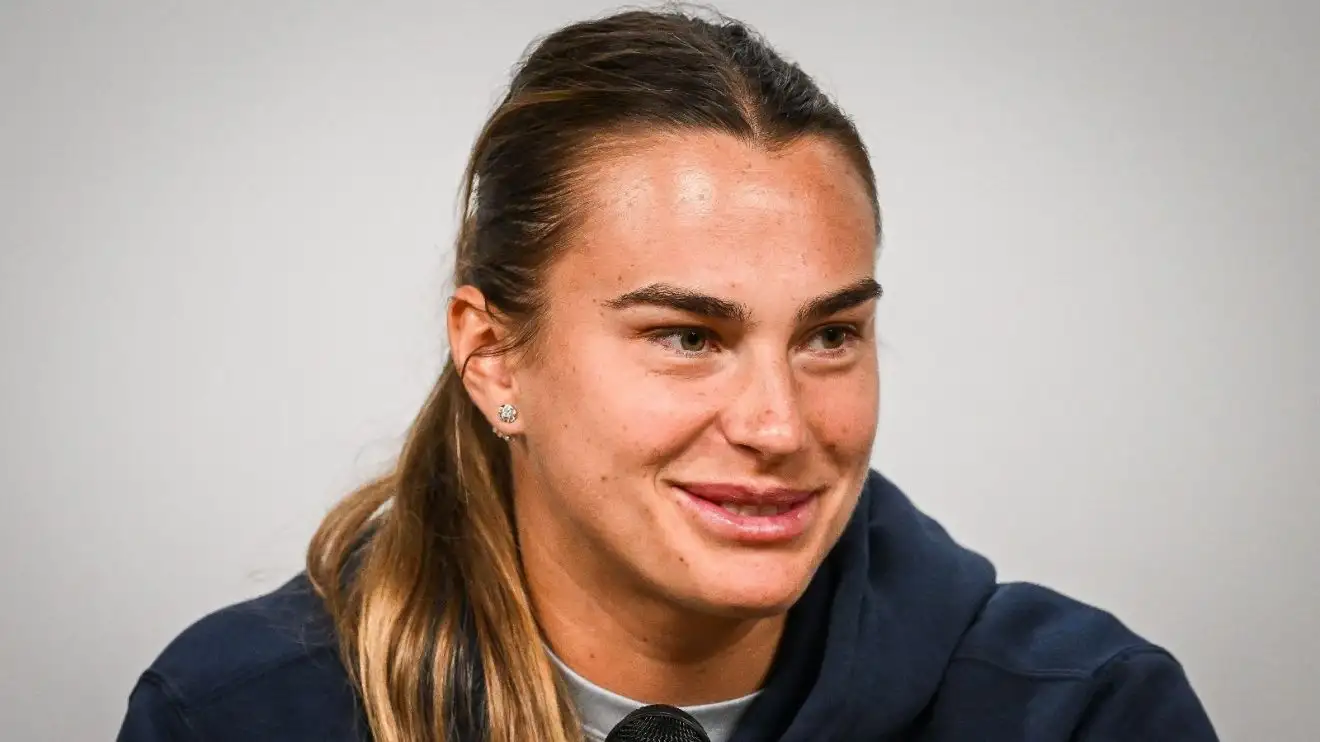
Aryna Sabalenka, currently ranked as the world’s No. 1 women’s tennis player, recently addressed the heated topic of the WTA’s decision to host the year-end WTA Finals in Riyadh, Saudi Arabia. Sabalenka stated she feels “no issues” playing in the country despite the controversy surrounding the decision. Set to begin this Saturday, the WTA Finals in Saudi Arabia mark the first of three consecutive years the tournament will be staged in the kingdom. The decision to host such a high-profile event in Saudi Arabia has been met with mixed reactions and considerable criticism, particularly from former tennis champions, activists, and human rights organizations who raise concerns about the country’s record on women’s rights and LGBTQ+ treatment.
The WTA’s choice of Saudi Arabia as a host has faced vocal opposition from tennis legends like Martina Navratilova and Chris Evert. Both champions, who have long been advocates for equal rights in sports, have publicly questioned the WTA’s alignment with a country where gender equality remains a contentious issue and LGBTQ+ rights are highly restricted. Human rights groups have also voiced concern, emphasizing that Saudi Arabia’s restrictive policies run counter to the principles of inclusivity that many sports organizations, including the WTA, profess to uphold.
Despite these criticisms, Sabalenka has expressed excitement about competing in Riyadh. As she prepares to open the tournament against China’s rising star, Qinwen Zheng, Sabalenka described her anticipation to “be part of some sort of history.” Reflecting on her previous experience in Saudi Arabia, where she played an exhibition match against Ons Jabeur, Sabalenka shared a positive impression of the country’s hosting efforts, saying, “I’ve been here with an exhibition match with Ons. I saw everything here is quite chill.” For Sabalenka, the opportunity to promote women’s sports on a global stage is paramount, and she sees her participation in Riyadh as a step towards inspiring a new generation of female athletes.
The Belarusian superstar acknowledged the Saudi government’s growing commitment to developing sports for women in recent years. “The effort they put into women’s sport here is incredible. I’m really impressed,” Sabalenka commented. She emphasized the importance of expanding tennis’s reach, adding, “I think it’s really important to bring tennis all around the world and to inspire the young generation.” Her words echo a common argument for holding sports events in emerging markets: that visibility and international engagement can drive progress and create new opportunities for youth, particularly young girls interested in tennis.
Sabalenka continued, underscoring the extensive efforts Saudi Arabia has made to become a hub for sports and entertainment. “This country has put a huge effort into bringing sporting events here and improving the quality of women’s life,” she added, saying she was pleased to be a part of that progress. For her, Saudi Arabia represents a new frontier for the sport, where she believes the presence of women’s tennis can have a positive influence. “We are safe. We’re having a great time. It’s a beautiful city,” she said, pointing to Riyadh’s hospitality and the facilities provided for the players.
As the top seed, Sabalenka enters the tournament as the favorite for the title. Her form over the last few months has been formidable, with recent wins at the Cincinnati Open, the US Open, and the Wuhan Open. Her WTA Finals campaign will begin with a group-stage match against the tournament’s seventh seed, Qinwen Zheng. Later, she will face Jasmine Paolini, seeded fourth, and Elena Rybakina, seeded fifth, in her bid to capture the prestigious season-ending title. Sabalenka’s participation in Riyadh comes as part of a larger movement of international sports events hosted by Saudi Arabia, adding to the country’s rapidly expanding sports portfolio. In tennis alone, this is not the first major event to take place in the kingdom. Last December, Saudi Arabia hosted the ATP NextGen Finals in Jeddah, and the tournament is expected to return there again this season. More recently, tennis superstars Novak Djokovic and Rafael Nadal headlined the “Six Kings Slam” exhibition event in Riyadh, which drew significant attention to the country’s budding role in the global tennis landscape. Rumors have circulated about the possibility of a Masters 1000 event being added to the Saudi tennis calendar, indicating that the kingdom may soon be a regular fixture in high-level tennis.
Saudi Arabia has also become a common venue for other sports, particularly boxing and soccer, despite ongoing concerns over human rights. High-profile boxing events have taken place in the kingdom in recent years, including championship fights with globally recognized boxers. Additionally, Saudi Arabia has invested heavily in soccer, with the Saudi Pro League attracting numerous star players and clubs from Europe. Despite the high-profile events and athletes the country has hosted, criticism remains persistent. Activists argue that Saudi Arabia’s engagement in sports should be seen within a broader context of “sportswashing,” a term that describes using sports to distract from or improve a country’s international image despite controversial domestic policies.
Sabalenka’s comments suggest she views her role in Riyadh as one that could bridge cultural divides. Yet, the debate over whether sports can drive meaningful change in societies with restrictive policies remains complex. While athletes like Sabalenka focus on bringing tennis to a global audience, advocates argue that true progress requires addressing fundamental rights and protections for all citizens, particularly marginalized groups. As she begins her campaign in Riyadh, Sabalenka remains focused on the competition, determined to end her season on a high note and claim her first-ever WTA Finals title in what promises to be an exciting and historic tournament.
Leave a Reply